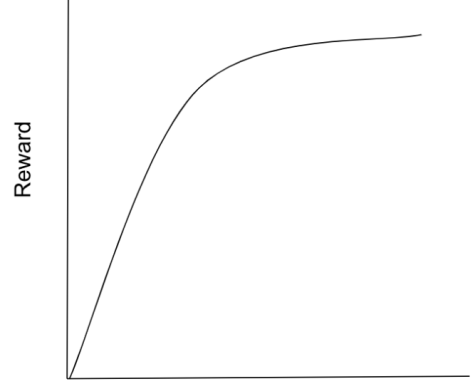AP Course Selection Advice

February 14, 2023
A pivotal period is coming up for Abington’s lowerclassmen: course selection.
Course selection can seem daunting. I remember being a sophomore and having almost no idea what I was even signing up for when I picked my courses during the pandemic. Thankfully, I can testify that things ended up alright. Regardless of what you end up taking, if you’re a committed student, you’ll have no problem making the most of it.
With that being said, there are definitely some things to know about course selection that I learned far too late, particularly concerning the selection of AP courses. What I am about to say may not be what you want to hear, but it is advice that I hope you will thank me for later. Here are the tips I would give to students struggling with choosing their classes.
#1- APs aren’t scary!!!
I get it. The word “AP” sounds terrifying. Trust me though, the classes themselves are just regular old courses. Other than a small number of specific APs (Physics C, Calc BC, Chem, etc), the majority of AP classes are essentially glorified Honors classes. When you walk into your new AP class on the first day of school, you’ll be surrounded by all the same kids that have been in your Honors classes over the years. As someone who took 5 APs last year and is taking 6 this year, I can tell you that my workload isn’t much bigger than it was when I was taking mostly Honors classes in 9th and 10th grade. This is my personal experience, but if you ask other juniors and seniors, they will likely tell you the same thing. Honestly, some APs can be easier than Honors classes depending on what you excel at. Last year, I found Honors Calculus to be more difficult than AP Lang, Psych, and U.S. History. The “difficulty” of AP classes is relative to how strong you are in a specific subject. APs get even easier once you learn that many of them have overlapping material. AP Gov and AP U.S. History, AP Environmental Science and AP Human Geography, AP Microeconomics and AP Macroeconomics—these are just a few examples I’m aware of where content in one class is almost directly paralleled to content in another. Even for the classes without overlapping content, I can promise you that they are normally manageable.
#2- More is better (usually)
Under the current GPA system, you are encouraged to take as many APs as possible. They are weighted more heavily in your GPA than Honors classes and can allow you to increase your class rank. The most simple way to take AP courses is to take them in place of required Honors courses. Think about it: if you’re going to be forced to take American History, you might as well take the AP version and give yourself a chance to boost your GPA and get college credit. It’s far easier to take an AP class and drop out if needed than to not take an AP class and try to switch into it later. I can tell you with absolute certainty that people rarely regret taking an AP course. What’s far more common is people regretting that they didn’t take an AP course when it was offered to them. I have friends who took very few APs junior year, realized their mistake, and are now taking way more in their Senior year to try and make up for it. Trust me, the LAST THING you want to do is be sitting in Honors Civics and Government knowing that you would have been totally fine chilling with all of your friends in AP Gov.
Beyond taking APs in place of normal courses, choosing them as electives is also important. You are given more flexibility with electives, so you can basically choose whichever ones you are interested in. Once again though, if you can take an AP instead of an elective, take it. Take AP Stat instead of Intro to Stat. Take AP CSP instead of one of the computer introductory courses. Take AP Psychology instead of Intro to Psychology. Again, worst-case scenario, you can always drop the class and switch into the easier version. Other advice I’d give is to save “easier” APs for your senior year. You will be so busy and burnt out at that point that you won’t want to be taking APs with high workloads. Some of the easiest ones, based on subjective student opinion, are: Gov (If you didn’t take it in 10th grade), CSP, Psychology, Statistics, Environmental Science, Human Geography, and Economics.
The one major exception I will give to the AP rule is Art and Music classes. I know of multiple people that could have had higher GPAs and class ranks had they not chosen to take these elective courses. However, this is somewhat of a calculated move, as in certain scenarios colleges would rather see you pursue an activity you are dedicated to than take an extra AP. I would also say that this applies to a lesser extent with language courses. Generally, colleges like to see that you’ve taken at least two years of a high school language class. After those two years, I would personally recommend replacing a language class with an AP course, but the decision is ultimately yours.
#3- Proper time management is crucial
The biggest mistake I see people make with AP classes is mismanaging their time. To illustrate this, I am going to use a simple visual that ‘22 Abington graduate Caden Fuji showed to my Lang class last year.

This basic concept of reward vs effort is especially relevant in relation to juggling multiple AP classes. Abington’s GPA system pushes students to take AP classes, but also has built-in leniency to make the task much less daunting. As you probably know, a 90% is worth the same as a 99%—the letter grade is all that matters. Understanding this should drastically change the way that you approach studying. It is inefficient to always be working at the top of the effort curve. Put in the amount of effort that will maximize your reward, and use your remaining energy elsewhere. The time you spend going from a 95% to a 98% in one class could instead be used to bring your B up to an A in another class. Furthermore, if all of your time is spent on one or two classes, what will remain for your clubs, sports, job, mental health, social life, family, or sleep? Having balance is key. Chasing perfection is the easiest way to become burnt out and neglect other important areas of your life.
Thank you for listening to my TED Talk. Seriously though, I hope that this advice will be helpful to you as you embark on this course selection journey. I acknowledge that all of this is coming from my own singular perspectives, so other seniors please feel free to leave a comment or write an article sharing your own experiences and advice.


Cynthia Lim • Feb 16, 2023 at 11:21 am
Thanks, Elijah